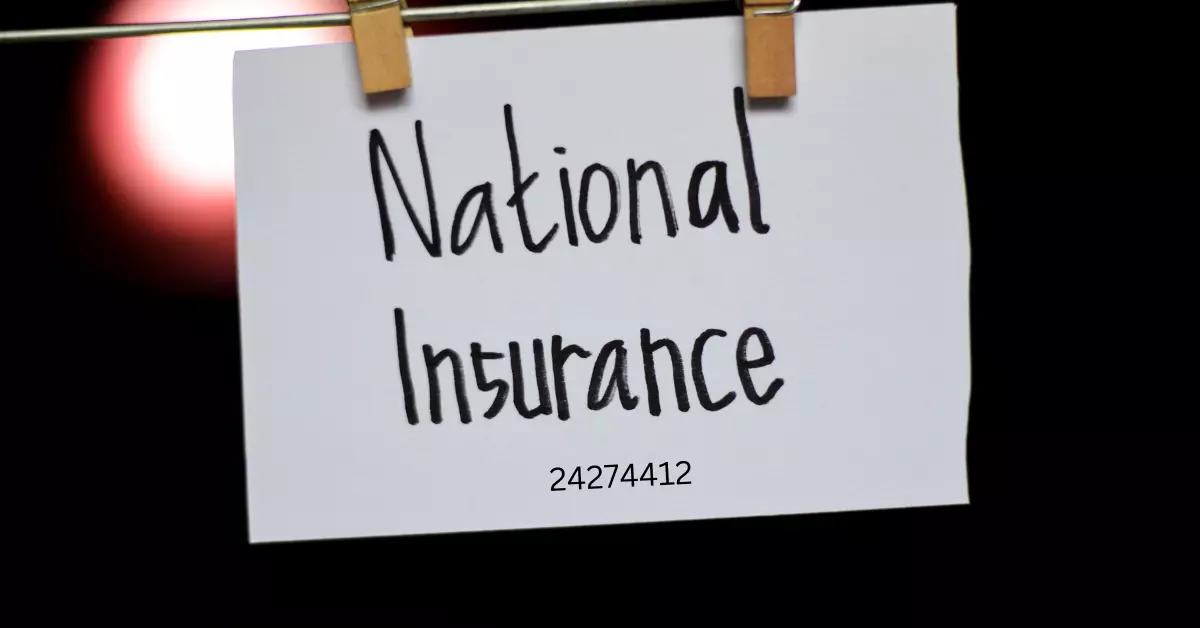Why Does Landlord Need National Insurance Number?
Landlords need a national insurance number to meet their tax obligations. Without it, they may face financial penalties or legal consequences.
The national insurance number is essential in identifying the landlord and ensuring that they are registered with HMRC.
Additionally, the national insurance number is used to verify their identity when conducting credit checks on potential tenants and is often a requirement when setting up a landlord insurance policy.
In this article, we will explore in detail the reasons why landlords need a national insurance number and the consequences of not having one.

The Role Of National Insurance Number In Renting Property
A national insurance number (nin) is a unique identifying number assigned to individuals who live and work in the UK.
This number helps the government to keep track of your national insurance contributions and provides access to certain government benefits and services.
How Is This Pertinent To Renting As A Landlord?
As a landlord, it’s crucial to ask for your tenant’s nin. Here’s why:
- It helps to verify their identity and citizenship status.
- It allows you to check their credit history and employment status.
- It ensures that they are legally entitled to rent a property in the uk.
Reasons Why Landlords Need To Require A National Insurance Number From
There are legal reasons why landlords require the nin of tenants:
Right to rent checks
Since 2016, landlords have been legally obliged to carry out right-to-rent checks to verify that tenants have the right to rent a property in the UK. Tenant national insurance numbers must be provided to do this.
Taxation purposes
The nin of a tenant is necessary for the administration of any tax associated with rental income.
Welfare benefits
A landlord must ensure that a tenant has a nin, or at least an application made for it, to verify their eligibility for any welfare benefits or housing assistance.
Proof Of Identity Verification

How Does A National Insurance Number Help Verify A Tenant’S Identity?
A landlord must always verify their tenant’s identity before offering a lease. A national insurance number (Nino) provides an easy way of doing this.
It is a unique reference number allotted to every citizen living in the UK, and it plays a crucial role in verifying the identity of renters.
Here’s how:
- The first two letters of a national insurance number represent the individual’s country of birth or nationality, allowing the landlord to confirm that the tenant is eligible to live in the UK.
- The next two digits represent the year of birth. This ensures that the tenant is above the legal age of eighteen, required to sign a tenancy agreement.
- The four digits following the year of birth are unique to each citizen and help avoid any identity confusion.
- Lastly, the national insurance number lets the landlord trace the tenant’s previous addresses, which is mandatory while performing a background check.
The Associated Risks To Landlords If They Do Not Verify Their Tenants’ Identities
Failure to identify the tenants may put the landlord at risk of various potential problems. These risks include:
- Landlord frauds. A landlord may pose as a non-existent landlord and convince you to deposit money in their fake bank account.
- Miscommunication with the tenant may cause misunderstandings and impact the landlord’s finances.
- Landlords may unintentionally rent their properties to people with a criminal or fraudulent background, which could lead to stolen goods or damage to the landlord’s property.
How Can A National Insurance Number Help Avoid These Risks?
As mentioned earlier, validating your tenant’s identity using a national insurance number is a secure way of mitigating the risks related to fraudulent activities. The benefits of verifying tenants using their no are:

Proof of identity
It is essential in the UK to have documented verification of a tenant’s identity. A national insurance number acts as a verified proof of identity, saving landlords from multiple problems.
Establishes legality
Verifying a tenant’s identity assures the landlord that the tenant is legally permitted to reside in the UK.
Past addresses
An individual’s national insurance number is directly linked to their previous addresses. Knowing about a tenant’s background helps landlords to avoid dealing with any suspicious individuals.
Building trust
Using a tenant’s national insurance number enhances trustworthiness and professionalism between the landlord and renter.
What Alternatives Are Available If A Tenant Does Not Have A National Insurance Number?
Not every tenant arrives at the property with a national insurance number. It may be possible that the tenant is visiting the UK for the first time and hasn’t applied for a national insurance number.
In such scenarios, the landlord should always ask for alternative forms of government-issued identity proof.
These include:
- Passport
- Driving license
- Biometric residence permit
Using the above documents, landlords can confirm the identity of their potential tenants. However, obtaining a national insurance number should be a priority for anyone looking to carry out future activities in the UK, such as working, renting, or studying.
Frequently Asked Questions On Why Does Landlord Need National Insurance Number?
Why Do Landlords Need A Tenant’S National Insurance Number?
A landlord might ask for a tenant’s ni number to conduct a credit check or to communicate with utility companies.
Can Landlords Refuse To Rent Without A National Insurance Number?
No, it is against the law to discriminate against tenants on the basis of their nationality or immigration status.
How Can A Tenant Provide Their National Insurance Number To A Landlord?
Tenants can provide their ni number on a rental application form or through a secure online portal.
Is A Tenant’S National Insurance Number Required For All Rental Contracts?
No, it is not always necessary. However, landlords may request this information to verify a tenant’s identity.
Conclusion
Knowing your landlord’s National Insurance Number unlocks greater security for you as a tenant. It confirms their identity, legitimizes your rental agreement and, in rare cases, can provide vital tax information.
For a smooth, transparent renting experience, you should definitely have this information on hand.